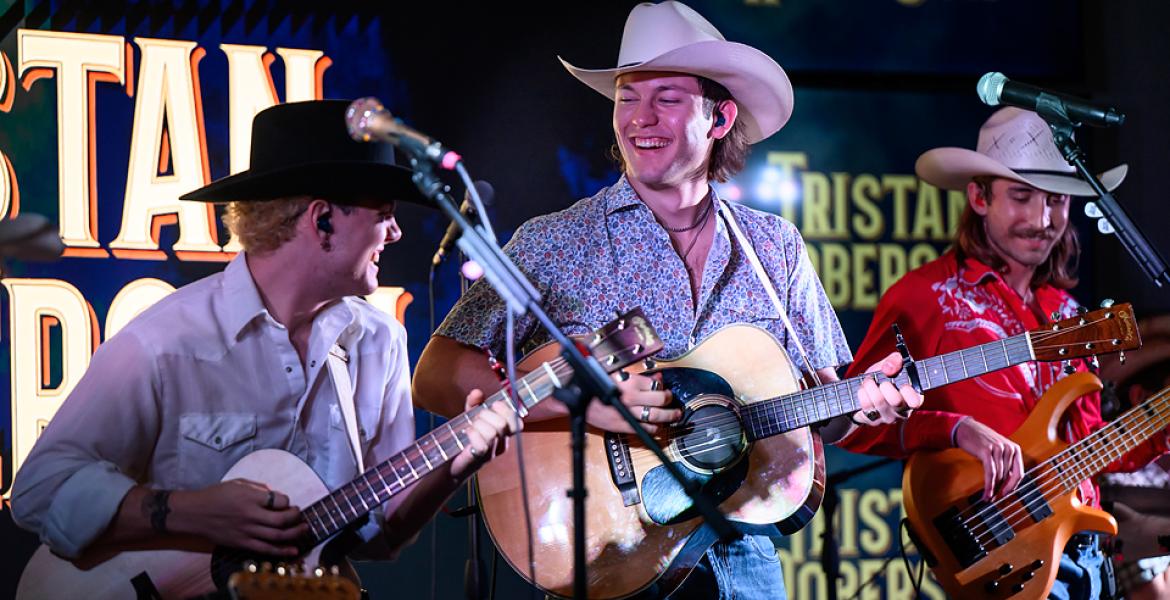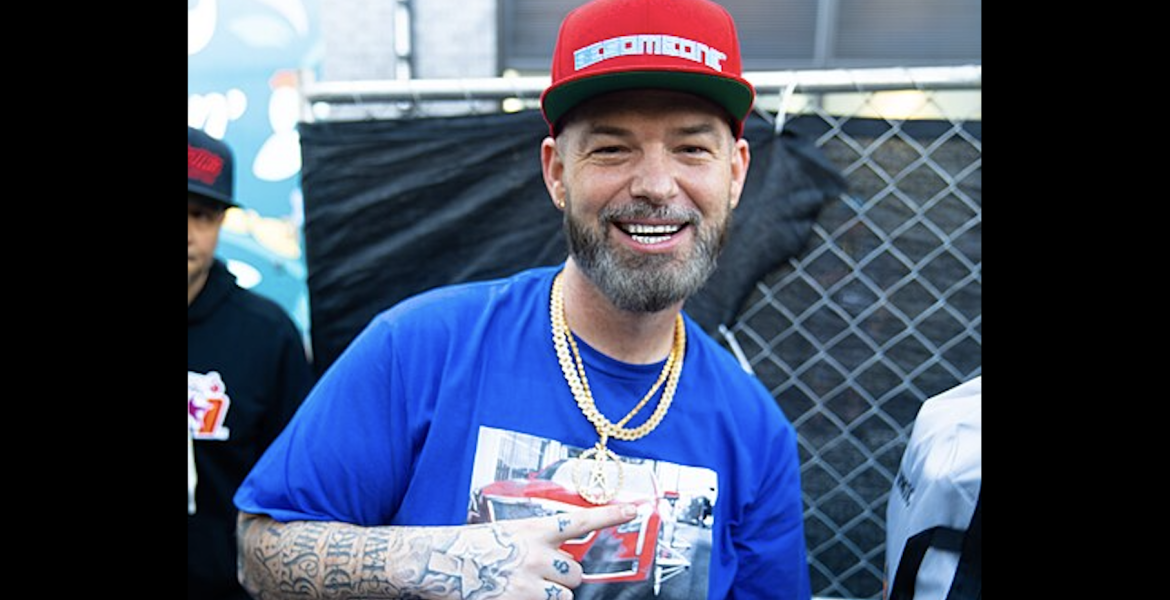SAN ANGELO, TX – A few San Angeloans are breaking into the independent film industry these days. Friday night, the premiere of the movie Reparation will show at Icon Cinema featuring San Angelo native Marc Menchaca (click here). Also on the independent film circuit is Cody Broadway.
LIVE! previously reported on Broadway’s current directing project, a documentary about the Texas School for the Deaf football team. Production for the film, 4 Quarters of Silence, began in April, and shooting wraps up today (see our previous stories here and here).

We caught up with Broadway to discuss the finalization of this life-changing project, and here is what he had to say.
LIVE!: Tell us about this new clip (visit here). What is important about it, and how does it add to the overall tone of the documentary?
Broadway: “The part of the film you saw was the foundation.This sets the tone of it all. The story is more than just football; it's about the people behind it all—the coach, players, parents, and an amazing school!”
LIVE!: What has it been like directing this film?
Broadway: “This project has challenged me in many ways. The great thing about it all is I'm learning so much, and meeting some amazing people. I recently moved to Denver, Colorado and I'm having to direct some from a distant. The main thing is I have surrounded myself with great people. The school has been super helpful with resources, and anything we may need; they have been there for us.”
LIVE!: How has directing such an inspiring story changed you?
Broadway: “I listen more. I have learned that there is more to listening than just hearing. Listening comes in many forms, and this film has helped me realize that. I've noticed in life we get so busy doing so many things that our communication suffers. When talking to people, we may lose eye contact. Eye contact to some people is very very key. It's a simple reminder to take a breath and focus on communicating the right message to people.”
LIVE!: How do you think this film has changed the players and the coach? What do you think they want viewers to get out of their story, and what do you want people get out of this?
Broadway: “The school is very excited about the film. They have seen the daily clips and edits and love it! Many of these students don't get recognition like a big powerhouse football team would. Some of them are often overlooked for whatever reason, and this project is giving them a voice and putting them in the spotlight—showcasing their skills, as well as their loving hearts for everyone.”
LIVE!: Tell us about a typical day of shooting. What is that like, and how hard is it trying to capture the story of this team?
Broadway: “Each shooting day has been different. Some we start bright and early, and other days we start after school with football practice. The school lends us an interpreter to spend the day with. Sometimes, it's more than one depending on the time of day. They help with all communication between the school, coaches, and players. I've noticed, on a lot of documentaries lately, they ‘set things up,’ meaning it's not true or real. With this documentary, I want to be a ‘fly on the wall’ and capture everything as it happens. This is real life stuff, from the coach studying game footage to players working out. With that being said, we use four different cameras while shooting. This allows us to capture different things at once.”
LIVE!: Overall, how much time have you invested in this film?
Broadway: “I would say not that much time ha, but my wife would say, 'Every waking moment.' We recently welcomed our second child, and the time I use to have is now gone. So, there have been a lot of sleepless nights to get this done. When shooting, we have spent around eight hours each day we are on campus. The biggest part is going through everything in the editing room—trying to form a story out of hours of great footage. One thing I'm not use to is subtitles. That has taken up a lot of time as well.”
LIVE!: Thursday is the final day of shooting. What is going through your mind knowing this is the case?
Broadway: “This is a bitter sweet time. I wanted to go longer, but when looking at the amount of footage I have, festival deadlines, family, and my new job, it's tough. The great thing is, this is more than just a football story. I hope people get that when watching. Every time we shoot, we capture a few great moments. Unfortunately, I have to direct this shoot from Denver, but the team that is going to shoot it is amazing. The great thing about them is they believe in this project and have donated their time and energy to do this for me. I can't thank them enough for everything!”
LIVE!: What is the next step in the process?
Broadway: “The next step is to finish putting everything together. I have most of it edited from earlier shoots and just need to add the missing parts of the story. I will take the footage in and go through it shot by shot. From there, I will choose the shots I like and what may fit the story. That is the tough part: hours of footage; but I can't use it all. After laying the story down, I select the music and feel of the story—something to help drive it. I will also do the subtitles around this time as well. Then I like to spend a lot of time in color grading. I have a look in mind usually, but it takes time to get it there. So I can spend hours messing with the color of each clip.”
“Once the film is complete then we will start the promoting and festival run. The great thing about social media is you can promote the project while the project is in production. I love being able to share my journey with people and give them an inside look at the making of this documentary. I want family and friends to be a part of this.”
LIVE!: What are people in the industry saying thus far about the documentary, and what do you think are their expectations?
Broadway: “I've shown a few people inside to get their view on it. The director of The Sandlot had great things to say about the edit and story itself. A couple of festival judges, one in L.A., and the other is an ex-Sundance programmer, they both think it has a really good shot at a festival run this year. They have also been great with helping me get my edit and overall film to that next level.”
LIVE!: We know you just welcomed a new family member. How hard was it balancing filming this documentary and dealing with a baby on the way?
Broadway: “The hardest thing I have ever done! The time I once had is now gone, but I don't mind it. The joy of the new baby, and the excitement about this film is keeping me going. I'm sure once the film is complete in the next couple of weeks, I will crash. I have so much passion about this project and the energy from my family, the school, and close friends has really helped keep me going. I could never do this alone. While here in Denver, my good friend Michael Lukaszewskyj has been really good about helping me out by going to get extra shots when needed, or spending his time, money, and energy to shoot a football game. I couldn't thank him enough.”
LIVE!: What else would you like our readers to know about this film, and the process of directing it?
Broadway: “That there is no way I could do this alone. You're only as good as the team you have, and I couldn't be happier with this crew and the school. Michael and David Hughes have helped with equipment and shooting.”
For additional details and the synopsis of 4 Quarters of Silence, click here.
Subscribe to the LIVE! Daily
Required






Post a comment to this article here: